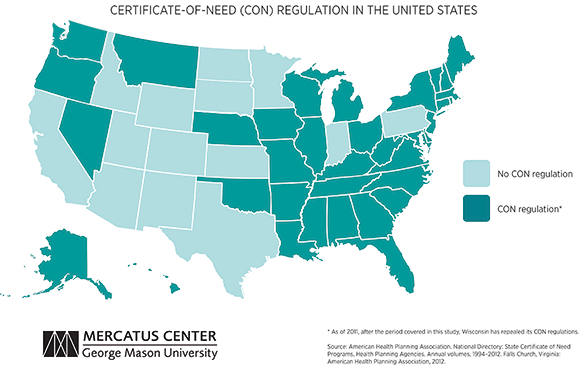Certificate-of-Need Laws Raise Costs, Reduce Services
< < Go Back
In a new study for the Mercatus Center, scholar Thomas Stratmann and research assistant Jake Russ explain that certificate-of-need laws reduce available health services and increase costs but do not increase care for needy Americans.
Certificate-of-need (CON) regulations prevent health care providers and hospitals from entering markets or offering new services without approval from state regulators. Currently, 36 states have these programs.
The regulations were intended to keep health care costs down, the idea being that keeping competition out of the market would increase the profitability of health care providers in the area. As such, those providers would have excess funds with which they could subsidize medical services for the poor.
But as Stratmann and Russ’s study demonstrates, CON laws only increase the price of medical care by keeping competitors away, doing nothing to help the poor gain access to care.
Moreover, the states with CON laws have fewer hospital beds and less medical equipment than the states without the laws:
– For every 100,000 residents, CON states have 99 fewer hospital beds.
– CON states limit medical services, with hospitals in those states providing fewer MRI services and offering fewer CT scanners and colonoscopy services.
The authors found no evidence that CON laws improved the poor’s ability to access medical care.
More From NCPA:




